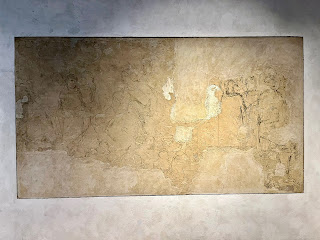Agents and their social life
Imagine a vertical line. At the bottom, some very elementary agents, simple tasks, unsophisticated lives, blind mechanisms of sort. But they get together, and a level up in our vertical line, the next family of agents are just a bit less elementary, their tasks a bit less trivial and simple. They are not so unsophisticated, so uninteresting. Move up one more step, and you will encounter societies of ever more complex agents. Then, all of a sudden, there is us, you and me and mom and dad, and Jane and Peter. But it lasts only one step. The next is your family or your group of friends, a party, a company, some sort of society of human agents which has already lost that special spark that we call mind.
From the mindless bottom of sub-atomic particles to the mindless top of the universe, we are just one of the billionth stations where Being calls at, in its journey from simplicity to complexity. The question is: can we reproduce this ontological journey?








Can we even describe it?
ReplyDelete